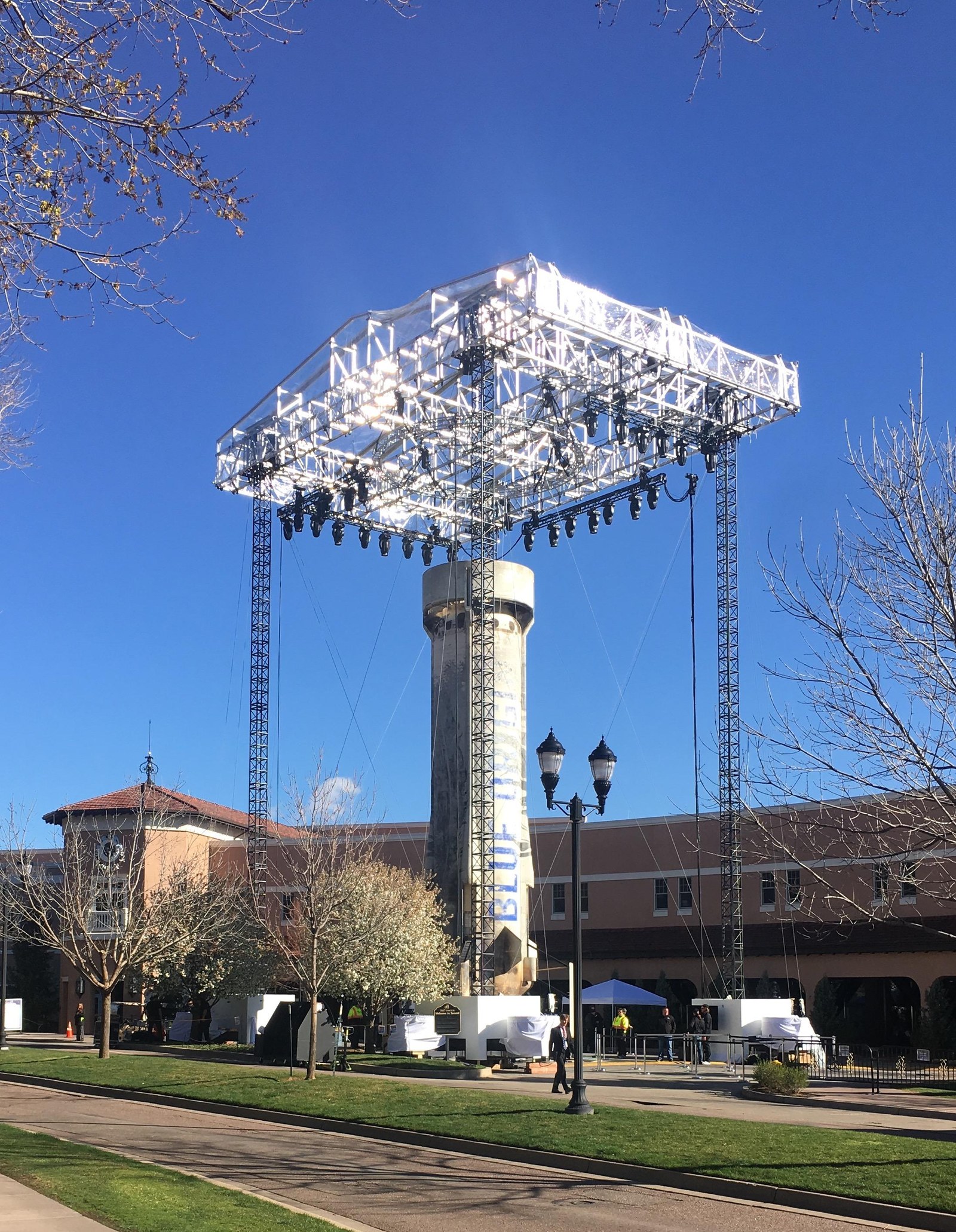Space Symposium 2017 in Colorado Springs
From 3 to 6 April 2017, delegates from industry, science and government from all over the world gathered at the Space Symposium in Colorado Springs to discuss current and future developments in global aerospace. In addition to senior figures from German ministries, the German Aerospace Center (Deutsches Zentrum für Luft- und Raumfahrt; DLR) was represented by its Chair, Pascale Ehrenfreund and by Executive Board Members Gerd Gruppe and Hansjörg Dittus. The symposium is organised by the Space Foundation.
"This year's Space Symposium again offered an outstanding environment for international networking," says Ehrenfreund. "The planning and implementation of joint space missions and projects are not merely the road to success, they also serve as an example of collaboration in a world facing significant challenges." The directors of space agencies from 15 nations spoke at a meeting held during the 33rd Symposium. In addition to Pascale Ehrenfreund, they included Igor Komarov, Director of Roskosmos, Jean-Yves Le Gall, President of the French space agency CNES, Jan Wörner, Director General of ESA, and Sylvain Laport, President of the Canadian Space Agency CSA. The perspectives and opinions on current developments and future requirements in space research and on the use of aerospace were unanimous. The need for greater involvement of the general public was mentioned frequently. Komarov voiced a similar sentiment: "We fly to the Moon and to Mars. We have to give people something in return." Yasuyuki Ito, JAXA Associate Director General, emphasised that "Space and its exploration are educational tools to inspire all of society."
Closer collaboration with the industrial sector
The participants also concurred that a stronger focus must be placed on using aerospace to the benefit of humankind, and that closer relationships with the industrial sector, for instance through public-private partnerships, need to be promoted within the framework of ongoing commercialisation. Discussions also centred on the potential risks posed by space debris and asteroids both in orbit and on Earth. Here, China announced the construction of a new radio telescope, inviting all partners to cooperate in the Chinese space programme. Komarov provided an astute summary of the over 90-minute roundtable discussions by attesting that aerospace most frequently produces innovation through cooperation.
The Space Symposium is also an occasion for informal discussion forums aimed at promoting multilateral research and development projects. The aim is to strengthen the positive impact that aerospace can have on society as a whole by organising initiatives within education and for young scientists, as well as by creating technology transfer programmes. "The relaxed exchange of opinions at the US German Aerospace Roundtable UGART gives us the opportunity to discuss all kinds of collaborations and coalitions in an open atmosphere," said Klaus-Peter Willsch, Member of the German Bundestag (the national parliament of the Federal Republic of Germany) and Chairman of the Aviation and Space Group. "Germany and Europe as a whole still have much to learn from the United States."
Young aerospace researchers meet representatives from international space agencies
The Space Symposium opened on 2 April with the traditional Yuri's Night celebration, held in the headquarters of the American Space Foundation. Commemorating the first man in space, the symposium’s opening evening at the foot of the Rocky Mountains was dedicated to young scientists and engineers in the aerospace sector. Students had the opportunity to meet delegates from international space agencies, research institutions and industrial companies.
The participants at this year's symposium were particularly interested in information about future US space policies, their new strategic alignment, associated scientific objectives and forms of future collaboration. The accompanying exhibition featured space transport, the use of aerospace, and concepts for unmanned flight to Mars, providing a tentative impression of the main topics to come. Two private sector, US-built cockpit simulators for spacecraft designed to explore the Solar System were particularly remarkable.
The DLR Space Administration invited small to medium-sized enterprises to participate in the German presentation, organised in cooperation with NRW.Invest. Delegates from Astro- und Feinwerktechnik Adlershof GmbH, Berlin Space Technologies and Jena-Optronik from Thuringia were also able to attend the event in Colorado. DLR showcased missions, projects and collaborations in the areas of 'In Orbit Servicing', 'Safer Air and Space Transport', as well as 'Satellite Technology'.



